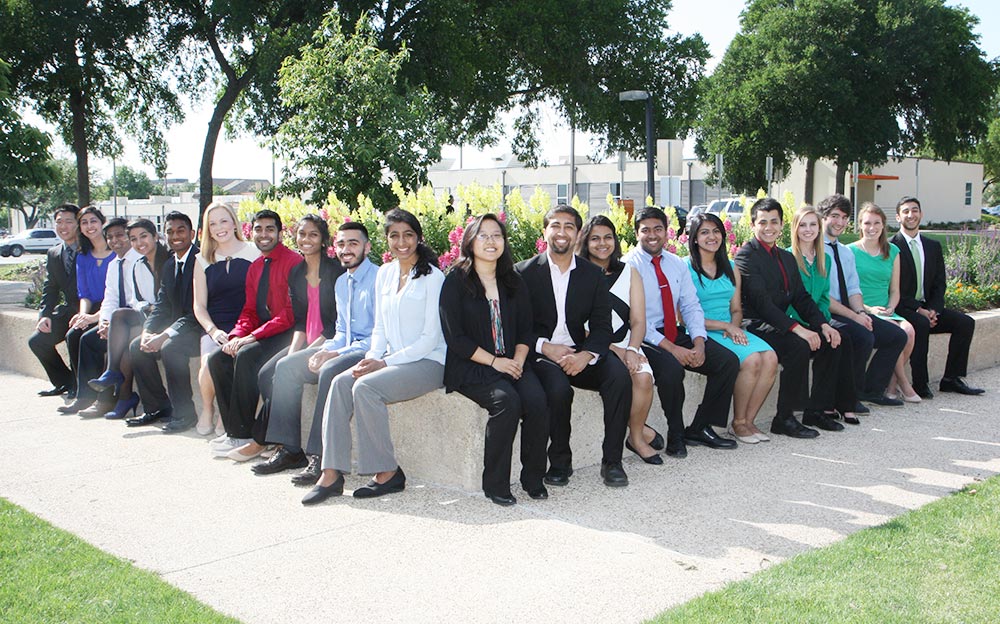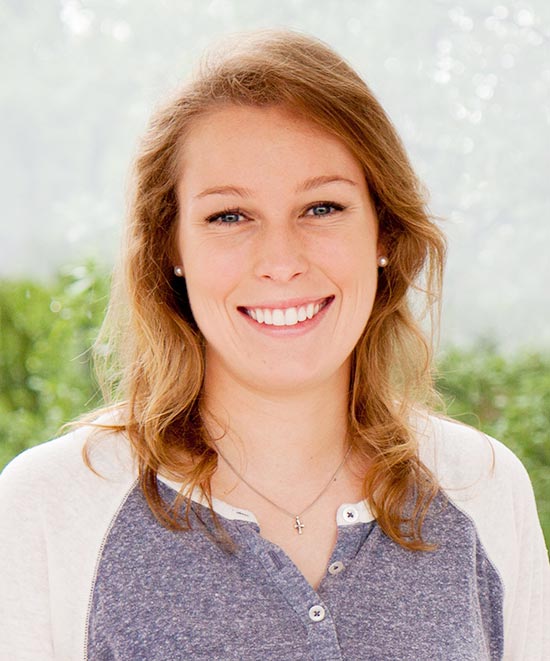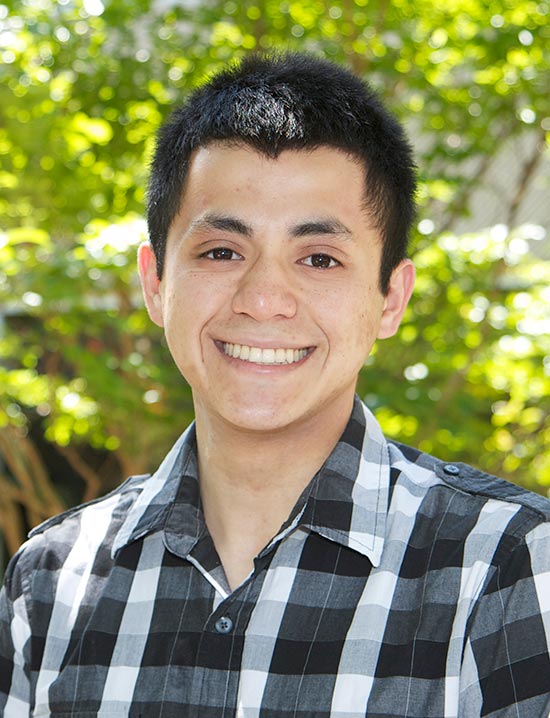
Twenty UT Dallas students blazed a new trail toward training health care professionals for Texas and the nation.
When Courtney Walton was 12 years old, her grandfather underwent quadruple bypass heart surgery. One of his doctors at the hospital took the time to explain to the anxious, but curious, girl exactly what the procedure would entail.
That encounter left a lasting impression on the young Walton. After graduating from Frisco High School, in 2012 she enrolled in a novel initiative at The University of Texas at Dallas that has put her on an accelerated path toward a career in medicine.

Courtney Walton balanced rigorous academics with athletics, earning Academic All-American status in soccer.
After just three years as an undergraduate, the UT Dallas senior will graduate Thursday with 19 fellow biology majors who have completed the first leg of a physician-training program called the UT Partnership in Advancing Clinical Transition (UT-PACT). The collaborative effort pairs UT Dallas with UT Southwestern Medical School to provide an enhanced curriculum so that students complete their bachelor’s degrees in biology in just three years before starting medical school.
The program allows Texas residents to receive both a baccalaureate and a medical degree in seven years, reducing by a year the time it takes to become a doctor and ultimately reducing the financial cost.
UT-PACT is part of The University of Texas System’s Transformation In Medical Education (TIME) program, created in 2011 to link medical schools with four-year colleges throughout the UT System in an effort to better prepare students for careers in 21st-century medicine.
The group of 20 UT Dallas students is the first cohort in the TIME initiative to graduate and begin medical school, which they will start in the fall. Since 2012, the program has added 20 students each year.
“This is our first group to move through, and we’re very proud of them,” said Cristina Gonzalez, assistant professor and UT-PACT program coordinator.

Kyle Russo said his grandmother’s cancer diagnosis motivated him to enroll in UT-PACT.
For UT-PACT student Kyle Russo, the women in his family provided inspiration to pursue a career in medicine. His mother and two of his four sisters are nurses, but it was his grandmother’s cancer diagnosis that motivated Russo to enroll in UT-PACT.
“My junior year in high school, my grandmother was diagnosed with stage 4 liver cancer and was given only months to live,” said Russo, a Terry Scholar from Fort Bend, Texas, who also is a member of the Chi Phi fraternity. “Getting that news was tough, and I didn’t want others to experience suffering as we did.
“That was five years ago, and she’s still with us,” said Russo, who added that he’s hoping to see his grandmother at his UT Dallas graduation. “It goes to show how uncertain medicine is. I’d like to try to advance medicine and make the type of positive changes our family has seen.”
The UT-PACT undergraduate curriculum includes basic science courses that incorporate clinical relevance. Beginning the summer after their freshman year, students get clinical instruction from UT Southwestern Medical School faculty and gain meaningful exposure to patients. Students also receive support and mentorship throughout the experience to help build and develop their professional identity and help maintain their focus on professional values and patient-centered care.
“All the UT-PACT students are involved in more than just their studies. That’s good. That’s why we picked them in the first place. Not only do they excel academically, but they also have leadership qualities, time management skills, and they’re able to relate on a human level.”
Cristina Gonzalez,
assistant professor and UT-PACT program coordinator
The enhanced curriculum includes courses in medical ethics, culture and medicine, public health, bioengineering and advanced communications skills, providing graduates with a level of preparedness not previously seen for first-year medical students.
“I anticipate that the PACT students will be much more comfortable with all the clinical experiences in the first 18 months of medical school: interacting with patients, talking to them, listening to them and examining them,” said Dr. Dorothy Sendelbach, professor of pediatrics at UT Southwestern and the clinical medicine course director for UT-PACT.
“I have been very impressed with the maturity and dedication of these young students,” Sendelbach said. “They certainly have exceeded my expectations.”
Sendelbach said she hopes the students graduating from the TIME programs develop a stronger professional identity and sense of professionalism than the traditional medical student.
“I expect them to be humanistic health care providers who have well-developed skills in the art of medicine, in addition to the science of medicine,” she said.
Russo said that in addition to his experiences at UT Dallas, having two older and two younger sisters has helped him become more empathic when dealing with people who have different perspectives, which he thinks will benefit his career. He’s leaning toward pediatric oncology.
“I feel that no matter what I do, whether dealing with a patient or a mother, being able to talk with them, empathize with them and show compassion is going to be pivotal to being a successful physician,” he said.
Walton said the undergraduate portion of the training and her interactions with a variety of clinicians associated with UT Southwestern have been “overwhelmingly positive.”
“We have been given unbelievable exposure to medical professionals who have all made time for us, and are taking the time to teach us,” she said.
Walton said the most important lesson she’s taking away from her time at UT Dallas, and in UT-PACT so far, echoes Sendelbach’s expectations and reinforces what she learned that day when a doctor took the time to explain her grandfather’s condition.
“As a patient, I would rather have someone who will take the time to sit down and talk with me about how they might help me, rather than a doctor who may have graduated at the top of his class who won’t even make eye contact,” she said.
“Being a doctor is as much about people skills as it is about medical knowledge.”